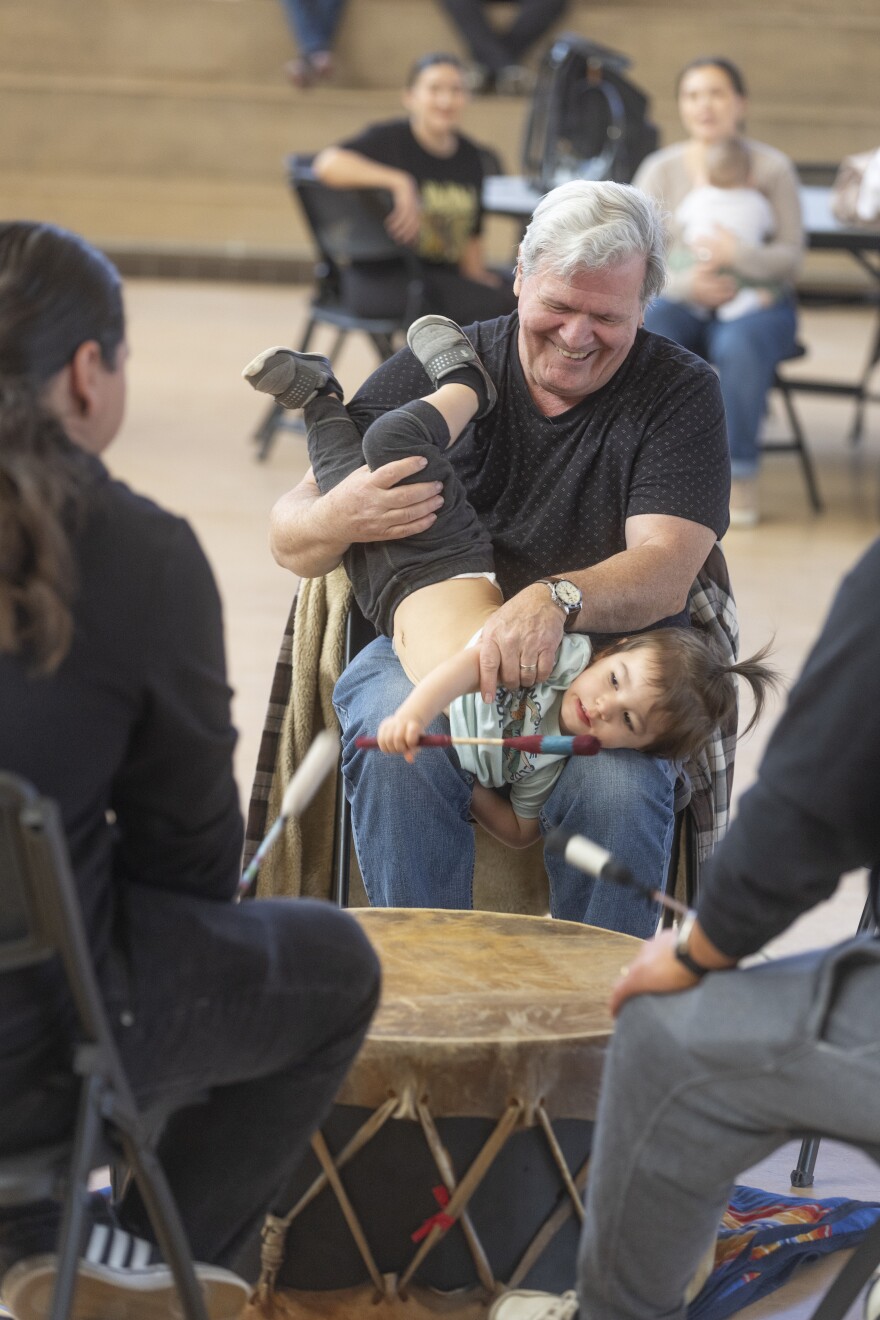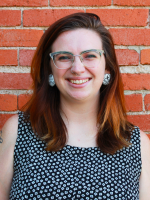Two drums sit to the north and south in the Gallery of Nations at the Mid-America All Indian Museum.
For the past several months, members of Prairie Rose Wellbriety have been learning to play the ceremonial drums.
This is the first time they’ve played them in front of an audience – and one of the first times the drums have been back at the museum.
Prairie Rose Wellbriety is still in its infancy. The group began in August and quickly took off in the Native American community.
Its goal is to help people in recovery from substances, or those struggling with addiction, through the use of their Native culture. Bringing ceremony into the lives of some who, often through no fault of their own, lost it.
“I was sober for two years; I had no idea why I was doing it,” founding member Ben Eagle Feather said. “It wasn't until we started this group, and I seen ... the importance of what we were doing that … I realized that this was exactly what I needed in my life.”

Eagle Feather started the group with Marcelino Carson; both men are Lakota.
The two met a couple years into their recovery. Like Eagle Feather, Carson said he felt like there was something missing even though he was a few years sober.
After going to powwows and becoming more involved in and curious about the Native community, it clicked.
Now, the two host talking circles, community nights and other meetings for people in recovery through their group. Family members and loved ones are invited to community nights, including the drumming circles.
“Our biggest base is, ‘What can we do for others?’ ” Carson said. “Because as a Native person, that's what a lot of what we are about … ‘What can we do to help our elders? What can we do to help the people who don't have as much?’ ”
Both Eagle Feather and Carson said it was that loss of identity that led them to addiction.
For Eagle Feather, he said generations of his family in South Dakota were forced into residential schools, unable to pass on their culture to future generations.
Carson said he grew up in foster care and was legally adopted when he was 7 and given a Hispanic name. For most of his life, Carson thought he was Mexican.
Now he’s helping pass on that generational knowledge with the help of elders.

“People just think we don't exist anymore,” Carson said, “and then when we pop up, they just don't know how to act or react.”
Stories like these aren’t uncommon in the Native community.
Decades of colonialism, genocide and assimilating Native Americans to western culture created intergenerational trauma for families, according to Andrea Medley from the Johns Hopkins Center for Indigenous Health. Medley is from the Haida Nation in western Canada.
She said before tribes were forced to move from their land, Native Americans were a healthy people and took care of the land.
“We have historically lived in good health, and our health has been disrupted by these colonial acts,” Medley said. “We are, in turn, reviving our culture and reviving our ways of being and using those as tools of healing to move forward.”
Decades of research shows that trauma and lack of community can have an impact on a person's wellbeing, according to Medley.
This makes community and culture even more important for prevention and for reducing the harms that can be associated with substance use.
“That's why we have so many different roles in our communities,” Medley said. “That way, we can all support each other. And so I think, in that way, reaching out to people and just giving people an opportunity for that connection in that relationship-building is a really strong support.”
It’s not just having community and support that can make a difference in helping someone get sober – it’s culture, too.
For Eagle Feather, it was difficult for him to go through faith-based recovery programs, knowing that generations of his family were in residential schools run by the Catholic church.
“There's always going to be that thought in the back of your mind about … ‘How many of our family members were wiped out in the name of that God?’ ” Eagle Feather said.
Wichita is rich with Native American culture. The city’s name comes from one of the many tribes that inhabited the land.
But many people still don’t understand Native ceremonies and customs. Carson said that was a barrier when he stayed in sober-living homes.
“Sometimes I was, out of a house of 30 to 40 people, I was the only minority,” he said. “It's a little difficult.
“In sobriety, they try to push for, ‘You're not different, you're one of us,’ and you try to feel that. But you're always gonna have that … in the back of your head, like, ‘Yeah, but I am still who I am … I have cultural roots here … in this land.’ ”

Addiction is a multifaceted issue. While lack of community and culture can be a factor, opioids were often overprescribed in Native American communities.
That’s what Hunter Health in Wichita is currently seeing in its patients going through its substance use disorder treatment program, according to Dr. Caitlin Chiles.
“Now that more light is being shed on what was happening … clinicians are finally deprescribing and coming around to realizing that this has created a huge issue,” she said. “We're now seeing those people who are no longer getting the prescriptions that they have been getting for a long time, and who may have developed a dependence or an addiction that needs further intervention.”
Hunter Health is a federally qualified health center. It began as an Indian Health Services Clinic, allowing it to receive federal funding to provide some services at no cost to its Native American patients. About 11% of its patients identified as American Indian in 2022.
It recently received opioid settlement funds from the state of Kansas to expand its medication for opioid use disorders services. Now everyone who walks in the clinic is screened for mental health and substance use issues.
Chiles said it’s also screening patients for diseases that can be associated with substance use like HIV and hepatitis.
“We try to eliminate those boundaries so that people can get the health care that they need, and any other behavioral health or social needs, that we're connecting them with the resources that we know are available to make sure that they're living their best lives possible,” she said.

Back at the Indian Center, generations of people surround both the north and south drum. At each circle, an infant sits on someone’s lap.
Eagle Feather has his 11-month-old child, Wren, with him.
Generations of women, from younger to older, dance in circles around the gallery, their feet stepping in beat with the drums.
Several kids run around the center, while some of the adults sit and watch the circles, taking in the powerful ceremony.
Recovery from addiction is possible. For treatment and substance use resources and information, visit kmuw.org/substanceuse or findtreatment.gov.
This story was funded in part by a microgrant from Reporting on Addiction, with support from the Solutions Journalism Network.


